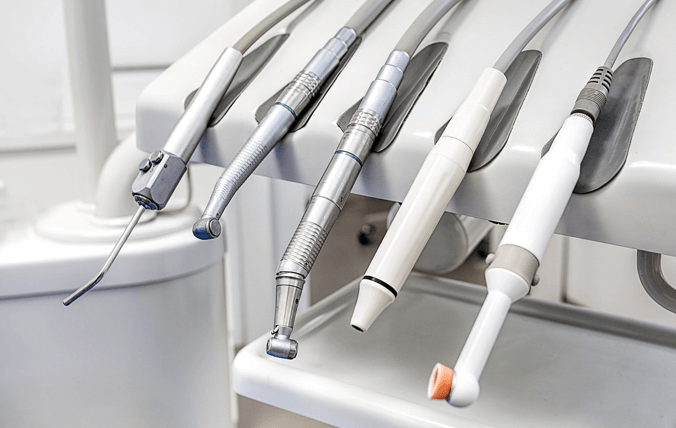Endodontics
Endodontistry, what is commonly called root canal treatment, is an involved dental treatment. It may sound daunting but where it is required failure to undergo the treatment will result in the loss of the affected tooth. At UK Dental Specialists our goal is to save your natural teeth where possible and with the minimum discomfort to you.
The aim of endodontic treatment is to resolve apical periodontitis, which is an infection that can affect the tooth and its surrounding tissues. Root canal treatment kills the bacteria that penetrate into the tooth, remove the dead tissues from the inside of the tooth and fill the tooth, in order to prevent a new infection.
Meet our Specialist Endodontist
“Patients need root canal work for a whole variety of reasons. At the initial consultation appointment I like to take time chat to my patient, find out what the issue is, help them to consider their treatment options and explain the treatment procedure. Once that’s done, an appointment can be scheduled to carry out the required treatment.
I also work part-time in the dental department at Kings College Hospital in London. Here I am involved in teaching and also in treating patients with complex root canal issues as well as patients who have suffered acute dental trauma.
That all makes for an interesting and busy week!”
Root canal treatment
Specialist Endodontists are Registered Dental Specialists with advanced education in root canal therapy. They are specially trained to diagnose and manage conditions that, if not treated, will certainly cause infection, pain and tooth loss. All dentists receive basic training in root canal treatment in dental school. However, because endodontic retreatment can be more challenging than providing first-time treatment, many dentists refer patients needing endodontic retreatment to specialist endodontists. Endodontists are dentists with additional years of advanced education in diagnosis and root canal treatment and treat these problems every day.
In some cases a tooth that has been treated previously will become painful or diseased months or even years afterwards, or the infected tooth may not be giving any pain at all and the inflammation can go on for years undetected (known as chronic apical periodontitis) until it becomes very painful or it is detected in a routine appointment by an X-ray examination.
Endodontists are experts in performing nonsurgical and surgical retreatment and may use advanced technology, such as operating microscopes, ultrasonics and digital imaging.
Treatment procedure
It usually takes 1-2 visits (from 1 hour to 1.5 hours for each appointment) to carry out root canal treatment or re-treatment. Additional visits might be necessary due to particular circumstances (for example anatomical or technical difficulties).
The process is as follows:
- 1. Preoperative radiograph – a small radiograph (X-ray) of the tooth is taken before starting the root canal treatment.
- 2. Isolation of the infected tooth from the rest of the mouth – the infected tooth is isolated from the rest of the mouth applying a special rubber sheet called rubber dam.
- 3. Mechanical cleansing of the root canals – the inside of the tooth is then mechanically cleaned using precision instruments and rinsed thoroughly using several solutions able to kill the bacteria that causes the infection.
- 4. Root canals obturation – at a subsequent visit the root canals are filled using guttapercha coated with a special root canal sealer. Guttapercha is a rubber material chosen for its strength and durability.
- 5. Placement of a temporary filling onto the tooth – again the resistant temporary filling material is placed onto the tooth to prevent infection of the tooth before a permanent restoration is placed.
- 6. Permanent restoration of the tooth – after the endodontic retreatment is completed, you will need to return to your dentist as soon as possible to have a new crown or other restoration placed on the tooth to protect and restore it to its full function.
“Great clinic and great staff! Professional, friendly and supportive.”

 01727 800 372
01727 800 372
